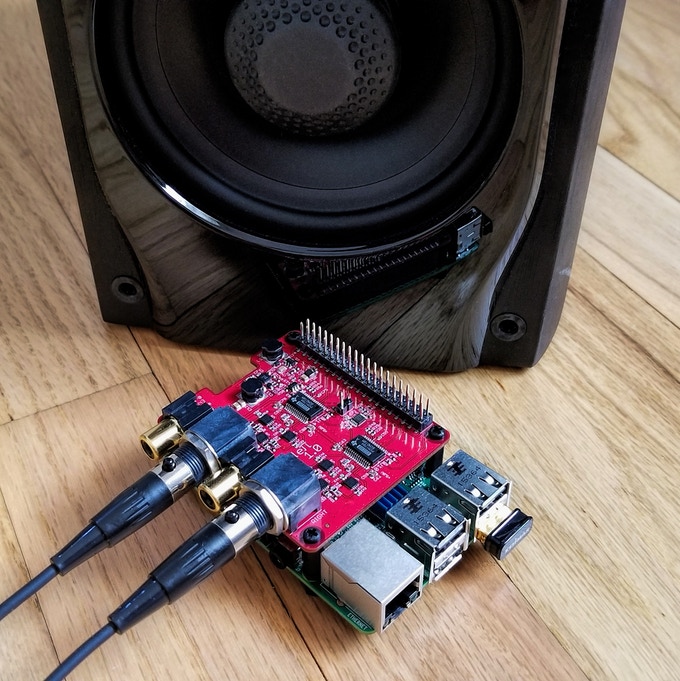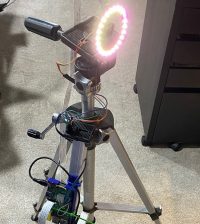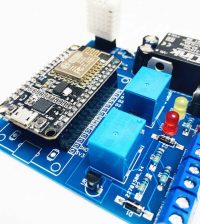- makeITcircular 2024 content launched – Part of Maker Faire Rome 2024Posted 2 weeks ago
- Application For Maker Faire Rome 2024: Deadline June 20thPosted 2 months ago
- Building a 3D Digital Clock with ArduinoPosted 7 months ago
- Creating a controller for Minecraft with realistic body movements using ArduinoPosted 7 months ago
- Snowflake with ArduinoPosted 8 months ago
- Holographic Christmas TreePosted 8 months ago
- Segstick: Build Your Own Self-Balancing Vehicle in Just 2 Days with ArduinoPosted 8 months ago
- ZSWatch: An Open-Source Smartwatch Project Based on the Zephyr Operating SystemPosted 9 months ago
- What is IoT and which devices to usePosted 9 months ago
- Maker Faire Rome Unveils Thrilling “Padel Smash Future” Pavilion for Sports EnthusiastsPosted 10 months ago
ApplePi DAC: the most advanced and highest performance sound card hat for the Raspberry Pi

Orchard Audio has launched a Kickstarter campaign for its ApplePi DAC audio HAT add-on for the Raspberry Pi and it has quickly surpassed its $5K Kickstarter goal.
ApplePi DAC HAT board is promoted as “the most advanced and highest performance sound card hat for the Raspberry Pi.”
The board is driven by dual TI Burr Brown DACs (PCM1794A) configured in monaural mode. The system has a dynamic range of >135dB and a signal-to-noise ratio (SNR) of 128dB.
Total Harmonic Distortion + Noise (THD+N) is listed as an impressively low <0.0005% (-106dB). The board supports both 16- and 24-bit bit rates, as well as sample rates of 44.1, 48, 88.2, 96, 176.4, and 192kHz.
The ApplePi DAC runs at 4.5W, and can be powered by a Raspberry Pi, but the optional 5V adapter is recommended. In addition to Volumio and Rune Audio, the ApplePi DAC supports moOde Audio, piCorePlayer, and Roon Network Endpoint software.
The ApplePi DAC supports the Asus Tinker Board and Allo.com’s Sparky in addition to the Raspberry Pi.
You can order the add-on board through May 13 starting at $175, with options including a $5 stacking header and a $25 5.25V, 3A power supply.
Find out more information at ApplePi’s Kickstarter page.















